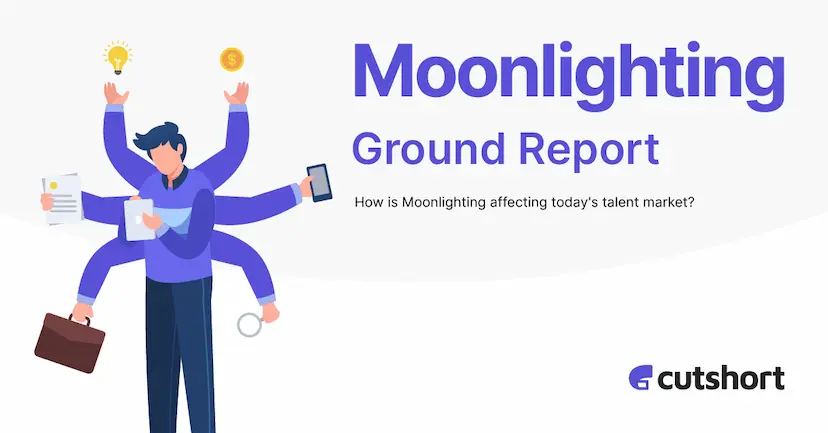How do you hire quality tech candidates without heaps of investment?
If the traditional tech hiring methods fail you in your efforts to hire exceptional talent for your company, you are at the right place.
There are seven clever ways to find enough tech candidates to fulfill your hiring needs. Let’s find out what they are.
#1 Niche Platform
Recruiters can use niche platforms for hiring candidates with specific skills and experience. All you need to do to utilize niche platforms is find one frequented by your target audience, register yourself as a recruiter, and advertise your job openings.
Niche platforms cater to specific industries or job categories, such as healthcare, technology, or finance. These platforms offer a targeted approach to hiring, which can be highly beneficial for recruiters looking for candidates with specialized skills or experience.
Niche platforms often have large databases of candidates actively seeking employment or open to new opportunities. Recruiters can use these platforms to search for and connect with passive candidates.
The hiring on niche platform strategy can benefit companies of all sizes, but it may be particularly advantageous for smaller and medium-sized companies.
Smaller and medium-sized companies may have more difficulty attracting premium and specialized talent through traditional recruiting channels, finding it hard to compete with MNCs. Niche platforms can help them expand their talent pool and reach the right candidates.
Hiring on niche platforms can be more cost-effective than traditional recruiting methods like job boards or staffing agencies. Smaller and medium-sized companies may have tighter budgets and limited resources, so the ability to find qualified candidates without spending a lot of money on recruiting can be especially valuable.
For example, if you need to hire candidates for tech roles, platforms like Cutshort, Hirist, StackOverflow, etc., can give you a niche talent pool. They allow you to go very specific and select candidates based on specific skills.
Another example of using niche platform hiring is the Ruby job board. It allows you to go completely granular with your hiring needs as you can advertise job roles by skills and industries.
Pros of hiring via niche platforms
- Access to a specialized pool of candidates: Niche platforms focus on specific industries or skill sets, allowing you to find candidates with the specific qualifications and experience you’re looking for.
- Reduced competition: Since niche platforms are often more specialized, you may have less competition from other employers looking to hire in the same industry or skillset.
- More targeted advertising: Niche platforms can help you create targeted job listings and advertising campaigns that are more likely to reach the right candidates.
- Greater engagement: Candidates who use niche platforms are often more engaged and motivated to find opportunities in their chosen field, making them more likely to be enthusiastic about your company and the job you’re offering.
- Improved employer branding: Using niche platforms can help you establish your company as a leader in your industry or skill set, which can improve your overall employer branding.
- Higher quality hires: Because you’re able to target candidates with specific qualifications and experience, you’re more likely to make hires who are a good fit for the job and your company.
Cons of hiring via niche platforms
- Limited candidate pool: While niche platforms offer specialized candidates, the pool may be smaller than on larger, more general job boards. This can make finding the right fit for your company more difficult.
- Higher cost: Niche platforms may charge higher fees for job postings and access to their specialized candidate pool. This can increase the cost of your hiring process, especially if you need to use multiple niche platforms to find the right candidate.
#2 Developer’s communities
Developer communities are groups of people interested in or working in the field of software development who come together to share knowledge, collaborate on projects, and support each other in their learning and professional growth. Some popular developer communities include GitHub, Stack Overflow, Reddit’s programming community, and various Slack channels, among many others.
Recruiters can utilize developer communities for hiring by engaging with the community and building relationships with its members. If you are a recruiter who wants to leverage the developer’s community, you can start by participating in community events. This will allow you to network with developers and learn more about their skills, experience, and interests.
You can also advertise jobs on community job boards. Many developer communities have job boards or forums where recruiters can post job openings. Make sure to include information about the role, requirements, and company culture to attract the right candidates.
There are many developer communities that you can use for hiring. Dev communities can have anything from a few hundred to a million members. For example, DEV community has over a million members. It has tech professionals from all industries, vertices, and niches.
Pros of hiring via developer’s community
- Access to a pool of premium talent: Developer communities bring together talented developers with diverse skills, experience, and backgrounds. This makes it easier for recruiters to find candidates with the right expertise for the job.
- Reduced time-to-hire: By tapping into developer communities, you can find candidates faster and more efficiently than traditional recruiting methods. This can help to reduce the time-to-hire and fill critical roles more quickly.
- Improved quality of talent: Developers who are active in communities are typically passionate about their work and are always learning and improving their skills. As a result, they often have a higher level of technical expertise, which can lead to better-quality hires.
- Cost-effective hiring: Developer communities are often free or have low-cost membership fees, making them a cost-effective way to connect with potential candidates. Additionally, by leveraging the community’s resources and expertise, recruiters can save time and money on recruiting efforts.
- Improved employer branding: Engaging with developer communities can help to build positive relationships with developers and improve the employer brand. This can attract more talented developers to the company and create a positive reputation within the industry.
Cons of hiring via developer’s community
- Limited availability: Some developers in these communities may be working on other projects or have limited availability due to other commitments. This can make scheduling interviews challenging or arranging for them to come in for an onsite visit.
- Lack of industry knowledge: While developers in these communities may have strong technical skills, they may have limited knowledge of the company’s specific industry or business needs. This can make it challenging for them to understand the context of the work and the requirements of the role.
- Potential for misalignment: Developers active in these communities may have different motivations or interests than the company. This can lead to potential misalignment between the company’s and the developer’s goals, leading to turnover or job dissatisfaction.
#3 Meetups & Tech Conferences
Recruiters can utilize meetups and tech conferences to find potential candidates and build relationships with them. Here are some ways recruiters can leverage these events for hiring:
- Attend relevant events: Recruiters should attend events relevant to the company’s industry and technology stack. This will help them connect with developers with the skills and experience needed for the open positions.
- Network with attendees: Recruiters should network with developers at the event, exchange business cards, and engage in conversations to build relationships. This will help to create a talent pipeline for future hiring needs.
- Host a booth or table: Recruiters can set up a booth or table at the event to promote the company and its open positions. This will help attract developers interested in the company and its culture.
- Sponsor the event: Recruiters can also sponsor the event to increase the company’s visibility and build brand awareness. This will help attract talented developers interested in the company and its mission.
- Organize a talk or workshop: Recruiters can organize a talk or workshop at the event to showcase the company’s expertise and thought leadership. This will help to build credibility and attract top talent to the company.
- Follow up with potential candidates: After the event, recruiters should follow up with potential candidates they met. This will help to build relationships and keep the company top-of-mind for future job opportunities.
Recruiters should consider hiring from tech conferences and meetups because it gives them a unique opportunity to engage with a highly targeted and engaged audience of potential candidates. It also allows them to evaluate candidates in person.
Both small and large companies can benefit from this strategy. However, smaller companies may benefit more because they often have limited resources for hiring and need to be more creative in their recruiting strategies. Attending meetups and conferences provides a cost-effective way for small companies to connect with talented developers and build relationships with them.
Additionally, small companies may have a unique culture and mission, and attending these events can help them to attract candidates who are a good fit for their company. However, large companies can also benefit from this strategy by identifying candidates with highly specialized skills and experience or filling multiple positions quickly.
Recruiters can get tech meetups and conferences updates by subscribing to tech-centric newsletters, social media pages, conference websites, etc.
Pros of hiring via meetups and tech conferences
- Gives you access to a targeted talent pool: Meetups and tech conferences attract professionals with a specific interest or expertise in a particular technology, industry, or job function.
- Networking opportunity: Tech events are great places to network with other professionals in your industry. This can help you build relationships with potential candidates and get referrals for qualified candidates.
- Exposure to the latest technologies: These events are a great way to stay up-to-date on your industry’s latest trends and technologies. This can help you identify new talent and ensure that your existing team stays current and relevant.
Cons of hiring via meetups and tech conferences
- High competition: Tech meetup events can be highly competitive, with many companies vying for the attention of the same pool of candidates. This can make it difficult to stand out and attract top talent.
- Limited time to evaluate candidates: Tech events can be busy and chaotic environments, which may not allow you enough time to evaluate candidates thoroughly. This can lead to poor hiring decisions and increased costs down the line.
#4 Employees’ networks
Recruiters can utilize employees’ networks to find qualified candidates for open positions. One of the most effective ways is through employee referrals. By encouraging employees to refer potential candidates, recruiters can tap into their networks and find high-quality candidates that may not have been discovered through traditional recruiting methods.
Another way to utilize employees’ networks is through social media. Recruiters can ask employees to share job postings on their social media accounts, such as LinkedIn or Twitter, to increase visibility and attract more qualified candidates. Additionally, recruiters can encourage employees to engage with potential candidates on social media to help build relationships and increase the likelihood of successful referrals.
Recruiters can also tap into alumni networks, professional associations, and networking events to connect with potential candidates. Alumni networks can be particularly useful for finding former employees with relevant skills and experience for open positions.
Pros of hiring via employees’ networks
- Cost-effective recruitment: Hiring through employees’ networks can be more cost-effective than traditional recruitment methods. It eliminates the need for costly job ads or recruiting agencies and the time and effort required to screen and interview many candidates.
- Improved employee engagement and retention: When employees feel like they are part of the recruitment process, it can increase their sense of ownership and engagement in the company. This can also improve employee retention, as employees are more likely to stay with a company that values their input and contributions.
- Faster recruitment process: Referrals from employees can speed up the recruitment process by reducing the time it takes to find suitable candidates. This can be especially helpful for companies that need to fill positions quickly, such as during periods of growth or when dealing with unexpected turnover.
Cons of hiring via employees’ networks
- Limited diversity: Relying too heavily on employee referrals can lead to a lack of diversity among candidates. This is because employees tend to refer to people similar to themselves regarding background, education, and experience. This can result in a less diverse workforce, impacting creativity, innovation, and overall company performance.
- Potential for bias: Referrals from employees may be influenced by personal relationships and biases, which can lead to a less objective hiring process. This can result in fewer qualified candidates being hired and lead to discrimination and legal issues.
#5 Referral
Recruiters can utilize referrals to find and hire top talent for their organizations. Referrals are candidates who have been recommended by someone within the organization or in the recruiter’s network.
Referral hiring has many advantages, the main one being that it is extremely fast. Besides that, referral hiring brings you candidates previously trusted by your current connections.
Here are some types of referrals that can be utilized:
- Internal Team Referrals: This type of referral involves reaching out to employees within the company who may have connections or know someone who could be a good fit for the job.
- HR Communities: HR communities are groups of HR professionals who share knowledge and expertise in HR.
- Professional Associations: Professional associations bring together professionals in a specific industry or field.
Pros of hiring via referrals
- Higher quality candidates: Referred candidates are often of higher quality as they have been recommended by someone who knows the company culture and job requirements.
- Improved retention: Referred candidates tend to have a higher retention rate as they are more likely to fit the company culture and job requirements.
Cons of hiring via referrals
- Missed opportunities: Relying too heavily on referrals can cause companies to miss out on potential candidates who are not part of the employee network.
- Negative impact on employee morale: Referral programs can create a sense of favouritism among employees. Employees not part of the referral program may feel left out or unfairly disadvantaged in the hiring process.
#6 Host hackathons or tech events
Hackathons and tech events are wildly popular in developer communities. It gives developers a chance to showcase their talent outside of their employment. Hosting hackathons or tech events is a creative way for recruiters to source and hire top talent in the technology industry.
Recruiters can utilize these events to showcase their company culture, identify top talent, and build a talent pipeline for future job openings. Additionally, hosting these events allows recruiters to engage with potential candidates and build relationships with them. This can create a positive impression of the company and its hiring process, encouraging candidates to apply for job openings.
Lastly, hosting a hackathon or tech event can help recruiters evaluate the cultural fit of potential candidates. Candidates participating in these events can demonstrate their teamwork, problem-solving, and communication skills, providing recruiters with insights into how well they fit with the company culture.
Smaller companies may benefit more from hosting hackathons because they may not have as established a brand or reputation as larger companies. By showcasing their company culture and providing a platform for talented candidates to demonstrate their skills, smaller companies can attract top talent and establish themselves as desirable employer in the industry.
One famous example of hackathons is Microsoft’s Imagine Cup in which individuals are invited to tackle actual global issues submitted by NGOs, IGOs, and nonprofit organizations. Another wildly popular hackathon is Facebook’s Hacker Cup, a coding contest open to everyone worldwide.
Pros of hiring via hosting events
- Employer branding- Hosting tech events can allow recruiters to showcase their company culture and values to potential candidates. This can help to attract candidates who align with the company’s vision and values.
- Building important relationships- Hosting tech events can help recruiters build relationships with potential candidates. This can create a positive impression of the company and encourage candidates to apply for job openings in the future.
Cons of hiring via hosting events
- Time and resource-intensive: Hosting tech events can be time and resource-intensive for recruiters, especially if they are organizing the event from scratch. This can take away from other recruitment efforts and may not be feasible for smaller companies.
#7 Advertisements on Niche Publication
Advertising jobs on niche publications is as targeted as it gets in job hiring. You can run display ads on niche websites and online magazines to direct potential candidates to your company website.
To run advertisements in online publications, you first have to research and identify niche publications that cater to your industry, job function, or skill set that you want to target. You must create compelling, attention-grabbing ads and provide clear information about the job opening, company, and application process.
The next step is to determine ad placement and budget and then monitor the performance of these ads on various websites. To do this, you might need a professional who runs and monitors online ads.
Pros of hiring via advertisements on niche publications
- Highly targeted audience: Online publications can attract a highly targeted audience, which means recruiters can advertise to a specific group of individuals with the skills and experience necessary for the job opening.
- Ability to track and measure results: Online advertising platforms often provide the ability to track and measure an advertisement’s effectiveness. This can help recruiters evaluate the ad’s success and adjust their strategy accordingly for future recruitment efforts.
Cons of hiring via advertisements on niche publications
- Ad fatigue: Candidates who regularly read a particular niche publication may become fatigued by seeing the same types of ads over and over again. This could result in the ad being overlooked or ignored by potential candidates.
- Cost: Depending on the niche publication and the ad’s placement, the advertising cost could be high. This could make it difficult for smaller companies with limited recruitment budgets to compete with larger companies.
Why are Popular Platforms like Indeed, Glassdoor, and Linkedin not on this list?
Platforms like Indeed, Glassdoor, Linkedin, etc. are very popular for hiring- and rightly so, as they have been known to deliver great results for recruiters. However, they are not a part of our list. Here is why-
- They are already popular- If you have been a recruiter for a while, you surely have already heard about these platforms. There are very high chances that you have even tried these platforms multiple times. So you don’t need us to tell you what they are and what they can do.
- Not specialize in niche hiring- This guide is about hiring qualified candidates in the tech niche. All the points we have discussed will help you get candidates with a specialized skill set in the tech domain. Indeed, Glassdoor, Linkedin are recruiting platforms for all domains. They are not built or meant to serve tech hiring requirements. That’s why we didn’t added them here.





